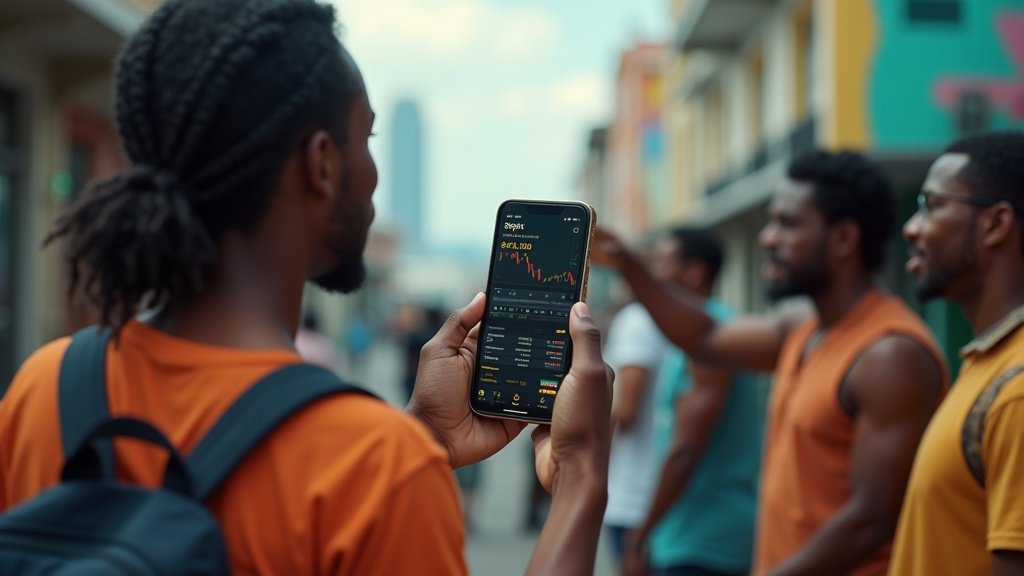For individuals in Jamaica looking to explore the world of cryptocurrency, platforms like Bitget offer pathways to acquire digital assets, including the potential to purchase tokens like Block Buster Tech Inc (BBTF). While BBTF has not yet been officially listed on Bitget as of September 2025, the exchange provides a general framework for buying cryptocurrencies using credit cards online, a method that remains accessible to Jamaican users, provided their financial institutions permit such transactions.
Understanding Block Buster Tech Inc (BBTF)
Block Buster Tech Inc (BBTF) is described as a liquidity injection token designed to benefit holders through an ecosystem of partner contributions. Launched in 2022, it operates on the BNB Smart Chain (BEP20). The tokenomics include a transaction fee on buys and sells, with a zero fee on transfers. BBTF aims to foster an interconnected community through various rewarding tiers and incentives, though comprehensive information on its current market status and broader utility remains under development. As of recent data, its market capitalization and circulating supply are not readily available, indicating it is likely an emerging or less widely traded asset.
How to Buy Crypto with a Credit Card on Bitget
Bitget offers a user-friendly process for purchasing cryptocurrencies using credit or debit cards. Users can initiate this process via the Bitget website or mobile app. The general steps involve logging into an existing account, navigating to the ‘Add funds’ or ‘Buy crypto’ section, and selecting the ‘Credit/Debit Card’ option. From there, users choose their preferred fiat currency (e.g., USD) and the cryptocurrency they wish to buy. After linking a Visa or Mastercard, they review the transaction details, including any fees charged by the service provider (not Bitget itself), and complete the payment. The funds typically reflect in the Bitget account within minutes, though processing times can vary.
Jamaica’s Economic Context and Cryptocurrency
Jamaica’s economy is significantly influenced by tourism, which contributes substantially to its Gross Domestic Product (GDP) and employment. Kingston, as the capital and economic hub, plays a central role in the island’s financial activities, trade, and transportation. The Jamaican Dollar (JMD) is managed by the Bank of Jamaica, with its exchange rate influenced by factors such as the trade balance, inflation, interest rates, and foreign direct investment.
While cryptocurrencies are not legal tender in Jamaica, their use and trading are not prohibited. However, the Bank of Jamaica (BOJ) has consistently issued advisories cautioning the public about the inherent risks, including high volatility, potential for criminal use, and cyber-fraud. The BOJ does not regulate or supervise cryptocurrencies, meaning individuals engage with them at their own risk. Despite these warnings, there’s an emerging trend of some Jamaican businesses, particularly in the tourism sector, beginning to accept cryptocurrencies, reflecting a growing, albeit cautious, adoption within the community.
Bitget’s Security and Trading Experience
Bitget emphasizes its commitment to user security through various measures. These include a $300 million Protection Fund, cold wallet storage for the majority of user funds, Two-Factor Authentication (2FA), and SSL encryption. The exchange also utilizes a Proof of Reserves system to demonstrate that customer funds are fully backed. Bitget aims to provide a fast trading experience, supporting a wide range of cryptocurrencies and offering advanced trading tools.
Considerations for Jamaican Investors
For Jamaicans considering cryptocurrency investments, several factors are paramount. Firstly, understanding that cryptocurrencies are not legal tender and are unregulated by the Bank of Jamaica is crucial. This means that investors bear the full risk of their investments, and there is no official recourse in case of losses.
When using platforms like Bitget, users should be aware of potential transaction fees, currency conversion rates if their credit card is not in USD, and the specific terms of service. It is also advisable to research any token thoroughly, such as BBTF, before investing, and to stay informed about potential regulatory changes in Jamaica regarding digital assets. The stability of the Jamaican Dollar and its exchange rate against major currencies like the USD can also impact the effective cost of cryptocurrency purchases made with JMD-denominated funds or when converting JMD to a foreign currency for purchase.
In conclusion, while Bitget provides a functional method for Jamaicans to purchase cryptocurrencies via credit card, the landscape of digital assets in Jamaica is one that requires a high degree of caution and due diligence. The island’s economic reliance on tourism and its regulatory stance on crypto necessitate a well-informed approach for anyone looking to participate in this evolving market.

